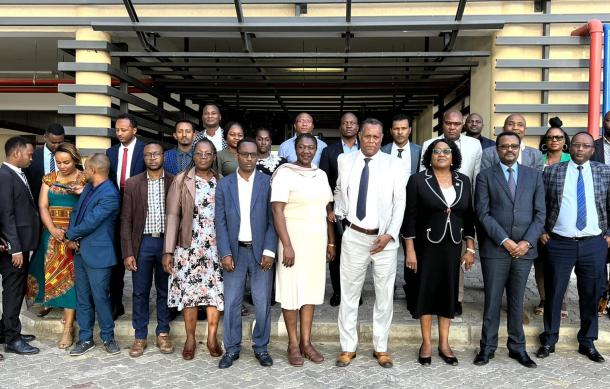
Ethiopia has commended Namibia for being one of the most experienced African countries in sanitary practices, especially with respect to the requirements of international trade.
This was said by a high-level delegation on agriculture from Ethiopia, who are in Windhoek on a benchmarking visit to Namibia.
Dr Fikru Regassa, Ethiopian State Minister of Livestock and Fisheries, says that his country has invested in multiple infrastructures and made institutional re-arrangements, including restructuring of the sector to enable a wholesome livestock trade.
Despite these efforts, says Regassa, the production of meat in that country remains low.
Contributing factors to the low meat production, he says, include the traditional livestock production system and the high prevalence of trade-limiting diseases.
He says the production of meat and the export of live animal products are greatly constrained in that country.
Therefore, understating the current meat sector status and identifying and taking lessons will help to develop a strategic intervention plan with respect to production performance, sanitary and SPS standards, and marketing systems. This, in turn, will help us expand our market destinations to countries with high demand for livestock products, such as China and other Asian countries."
The Ethiopian economy is heavily reliant on agriculture, which accounts for roughly 30% of the country's GDP.
The country's estimated cattle population stands at 70 million.
The Deputy Minister of Agriculture, Water and Land Reform, Anna Shiweda, informed the 11-member Ethiopian delegation that it is Namibia's duty to embrace this opportunity by making use of the visit as a base to consolidate and advance the already existing cooperation between the two countries.
The benchmarking visit, she says, specifically in the sectors of livestock production, processing, marketing, and trade, will benefit the people, particularly farmers, of the two countries.
"Agriculture is a key pillar of the economies of many African countries as it remains the economic and social mainstay of the majority of the population in our countries, particularly in view of the fact that 70% of the population depends on this sector for their livelihood. I am sure that this economic status of agriculture also applies to Namibia and Ethiopia."
The delegation will visit the Okapuka Tannery, Hartlief, the University of Namibia's Nuedam campus, and Meatco, among others.
They will also meet with various agricultural unions.





